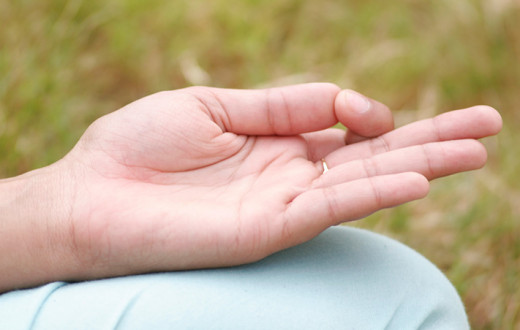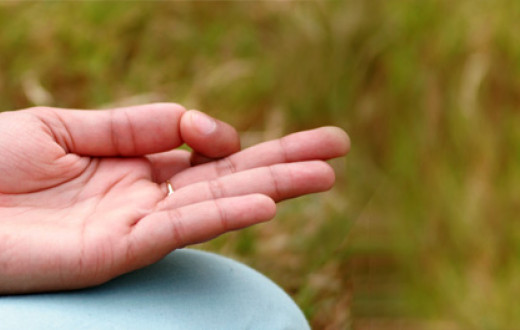The relationship between a teacher and a student is very delicate, sweet, and special. It is like someone helping a bud blossom into a flower. In this process, one needs to be careful and allow the bud to blossom at its own pace. The teacher like a gardener who provides the right soil for the plant to grow and bear flowers and fruits. A teacher, likewise, can only provide the right atmosphere for the student to bloom into a wise and cheerful personality.
Teaching young children could be among the most challenging jobs in the world. Have you ever felt you cannot afford to be emotional while teaching? Is it not so that being with kids pushes you to give them priority over yourself? But does that not drain you, emotionally, intellectually, and physically sometimes? Do you not expect yourself to never fail and help the kids grow the best?
Meditation can be one of your best companions in nurturing the young ones.
Let's find out how meditation works to help you and your child have a stronger bond.
Sharing Your Personal Space
How would it be if someone shouts at you frequently in the name of discipline? How would it be if you are restricted to an extent that sometimes you feel you lose your originality? Well, have you ever thought that children might feel exactly that when they are not allowed to behave the way they want to?
Obviously, a level of discipline is required; yet we can allow children to behave in the manner they want to with gentle and positive guidance so that their actions do not hurt others and are constructive and creative rather than destructive. Now, to create such a balance, subtlety might be required on your part.
It also might require you to share your space so that you are able to guide the child like a kite. Loosening the thread for the kite to expand and tightening it too when needed. Meditation kindles the subtleness in your mind. It helps you expand and gives you the ability to share yourself in a better way with kids. With regular practice of meditation, your tolerance increases and you are also in harmony with yourself. Things and people around you tend to synchronize with you faster. This makes your relations with students friendlier and you gain the respect and love of your students.
Tip : Make your smile inexpensive and stern face expensive. Begin your day with meditation. Meditation will make you calm and you will be able to show anger and be firm only when they are really required. At other times you can be like a friend to your students.
Try to set aside time on a regular basis to have some fun with your children. While being firm, be creative in giving them an appealing reason as to why it is important to do certain things.
Dealing With Impromptu Questions
A question hits you out of nowhere and you are caught off guard amidst 30 curious faces and eyes filled with wonder! How do you handle the situation?
With an attentive mind and high energy, you will be able to get through these situations. Meditation makes you more alive and energetic and helps you when you need to deal with "live wires". It helps you become attentive and aware most of the time and you can easily and confidently deal with these difficult questions thrown at you by these ignited minds.
Tip : Regular Meditation coupled with Pranayama helps you calm down fast and develop the serenity and wisdom to answer the barrage of questions with ease.
Beating Fatigue, The "Spoilsport"
How would it be if every single time you wear a bright smile when entering your class? How about you wishing the kids a great day before the kids stand and wish you back? This can happen when you are a storehouse of energy and love.
Fatigue at times can end up being a spoilsport for you. It happens when there is low energy in your body and you get irritated easily and are too tired to take a class.
You can beat this by tapping into the source of energy besides food--meditation.
Like a butterfly has to be in the cocoon before it can spread its wings, we have to withdraw into the self for strength. Many meditation practitioners consider meditation techniques to be excellent sources of energy.
Tip : Meditation coupled with deep breaths act as an instant energizer for your mind as well as your body. Utilize a break's time to enjoy a ten-minute meditation session.
Overcoming Emotions
How would you feel if you have to face your students after having a fight with your dearest friend? Does it not happen at times that you are angry and you end up shouting at the kids for a trifle and later regretting it? Our personal emotional turmoil at times proves costly for a child's development.
A meditative mind, on the contrary, is calm, highly effective, and serene. It is like a ripple-free, calm lake. Even if a ripple comes, it quickly abates. Meditation practices help our mind settle down and relax. Meditation coupled with the "So What Attitude" brings emotional harmony. Once calm, you will be able to interact with the students better.
Tip : If you are facing emotional turmoil, be aware of it; especially when you are with your children. With awareness, you might free yourself from taking it out on them. Regular meditation will help you become more aware.
Playing More Roles Than That Of A Teacher
A teacher is not just a text reader. Have you felt yourself playing the role of a mother/father or a friend; rather, have you felt you are playing the role of a mentor while being with your students? Are you not the one who can see the bigger picture of their lives and are there to help them see the same?
Students are tender, supple, and highly impressionable. They form judgments about you in no time. Being natural with them might be a good idea. Also allow them to have fun and get to know you. This helps them settle down in your presence quickly and very effectively.
Meditation helps you grow subtler in your presence and more natural in your behavior. Students see this and become more receptive and you are able to deliver your best to them.
Tip : Daily meditation practices helps you go deeper into your self. While in class, try to feel the students' presence and develop sensitivity towards their emotions. Respond to their emotions equivocally.

























